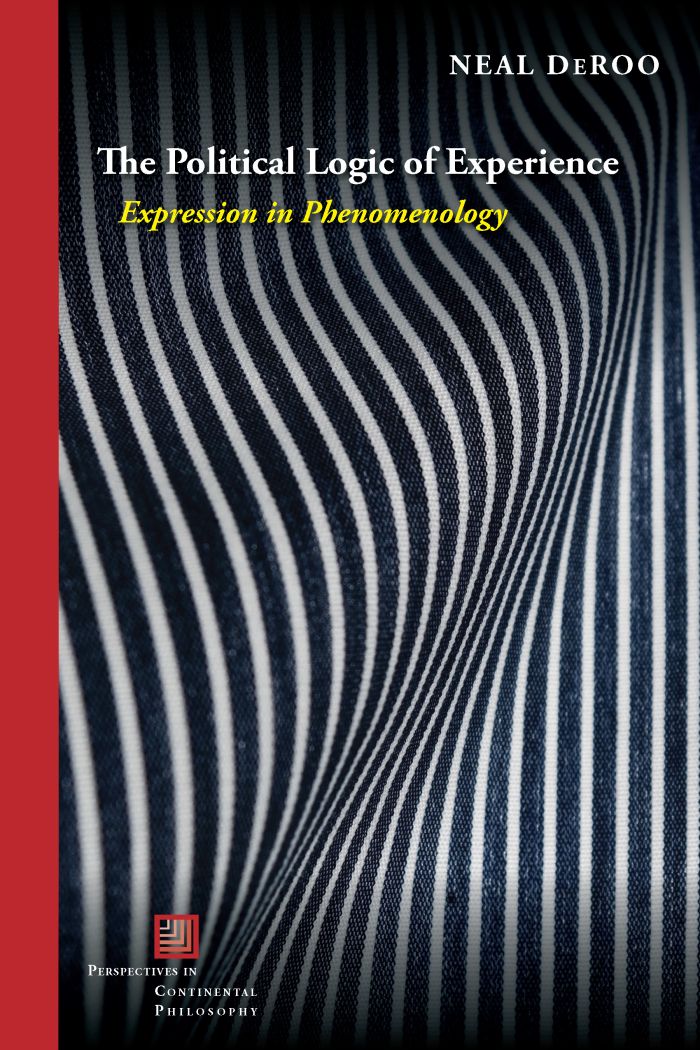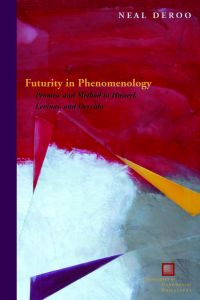The Political Logic of Experience
Expression in Phenomenology

This book can be opened with

The Political Logic of Experience argues that experience and phenomenology are essentially political, with profound implications for our understanding of subjectivity, epistemology, experience, the phenomenological method, and politics.
Drawing on work from across the phenomenological tradition, it develops an account of expression as the internal relationship uniting knowing, being, and doing with both transcendental conditions and empirical phenomena. This expressive unification generates subjectivity as an expression of particular communities and subjects as an expression of subjectivity. Subjectivity and experience are therefore both revealed to be inherently political prior to their expression in particular subjects.
In clarifying the political nature of experience and the constitution of subjectivity, the book puts the work of critical phenomenology in dialogue with transcendental phenomenology to reveal the need for a phenomenological politics: a field tasked with explaining the expressive, co-constitutive, and necessarily political relationships between subjects and their communities. It is only through such a phenomenological politics that we can properly make sense of the epistemological, ontological, and practical significance of issues like racism and sexism, problems that concern our very experience of the world. The book reveals phenomenology to be both essentially political and politically essential, as it emerges within particular communities and shapes and transforms how individuals within those communities experience the world.
Touching on issues of transcendental phenomenology, political strategy, historical interpretation and inter-disciplinary phenomenological method, the book argues for foundational claims pertaining to phenomenology, politics, and social criticism that will be of interest to those working in philosophy, gender studies, race, queer theory, transcendental and applied phenomenology, and beyond.
Ambitious and deeply considered, The Political Logic of Experience dives head-first into some of the most intractable puzzles of phenomenology. The book is significant and welcome in its promise to link strains of thought and scholarship—the socio-political and the transcendental—that are too often cordoned off into separate realms.—Gayle Salamon, author of The Life and Death of Latisha King: A Critical Phenomenology of Transphobia
Clearly written and rigorously argued, this book is required reading for all phenomenologists. Essential.—Choice Reviews
. . .[An] an ambitious and thoughtful book. . . The Political Logic of Experience not only tries, but ultimately, succeeds in articulating the epistemological, ontological, practical, and political dynamics that inextricably unite experience and politics.—Puncta: Journal of Critical Phenomenology
List of Abbreviations | ix
Introduction: Experience and the Problem of Expression | 1
1 A Phenomenological Account of Expressivity | 27
2 Material-Spiritual Flesh: The Subjective Implications of Expressivity | 47
3 From Sense to Sensings: The Epistemological Implications of Expressivity | 67
4 Making Sense of Experience: The Transcendental Implications of Expressivity | 87
5 The Subject, Reduction, and Uses of Phenomenology:
The Methodological Implications of Expressivity | 113
6 Toward a Phenomenological Politics: The Political Implications of Expressivity | 135
Conclusion: The Logic of Phenomenality | 159
Acknowledgments | 181
Notes | 183
Works Cited | 221
Index | 233




